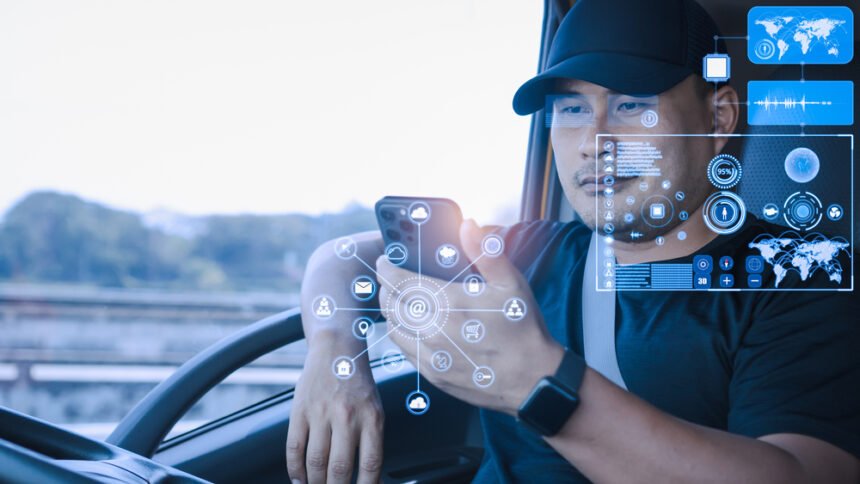Did you know that the geolocation data market is worth an estimated $12 billion? It is growing faster as more car companies use geolocation data to provide better services to their customers.
This is the era of Big Data. This massive processing of data reveals our tastes, movements and desires. It provides great value for companies and consumers alike. One of the most important applications of big data is with geolocation technology.
A GPS can help us reach our destination, but it can also compromise our privacy. A geolocation transponder is very useful on a highway, since it picks up the beacon and charges the cost to your account. However, it also contains information on our bank details. All the data we provide, consciously or unconsciously, helps change the world in a number of ways. Here are some benefits of big data provided by GPS technology:
- It helps car companies learn more about the driving behaviors of their customers, so vehicles can be designed to meet their needs.
- It helps city planners better understand traffic patterns, which can improve road safety.
- It makes it easier for GPS companies to provide more appropriate recommendations, since their geolocation satellites can spend more time focusing on learning about areas that customers are most likely to drive on.
- It can help improve different types of vehicles. For example, there are GPS systems specifically for trucks.
The third point is most compelling and serves the biggest benefit for the average customer. They should appreciate the benefits of using big data to help improve navigation and use more precise geolocation technology. Car companies and GPS providers are sharing geolocation data with each other, which has helped them both offer higher quality products to their shared customers. Many car companies are integrating GPS into their vehicles, which will be more useful as it relies more on big data.
In addition to improving navigation, car manufacturers can find new ways to improve on their existing vehicle designs. They often use a concept map (which is not a navigation map) to come up with new ideas for designs. These concept maps can integrate a lot of useful information, such as the data derived from GPS navigation from customers.
Car Companies and GPS Providers Collaborate to Share Data to Improve their Services
In the past, GPS navigation and vehicles were separate pieces of technology. However, more car companies are embedding GPS navigation directly into their cars. They are relying on big data to make their GPS systems more robust, reliable and accurate.
The proliferation of big data means that the main car manufacturers can guarantee smoother traffic flows, fewer recalls, more effective financing methods and more accurate machinery, since repetitive patterns of users can be easily discovered. They can also offer more accurate GPS results, since they will have more geolocation data on customers.
In most cases, drivers do not believe all of the benefits automotive companies claim to provide with their vehicles due to the massive amount of data customers hand over. They are sold as the panacea of progress and safety to compensate them for the intrusion they make in their personal data.
One study conducted by the McKinsey on big data in transportation found that 55% of respondents would be willing to let their vehicle track their location and transmit it anonymously to allow the manufacturer to “improve the next generation of the vehicle” while 24% responded that “under no circumstances”. The study didn’t ask whether they would be willing to share that data in order to provide more accurate GPS navigation. However, follow-up studies suggest that they would be more inclined to share data if they can get better GPS navigation.
Along the same lines, many users have decided to join the #Data4Drivers campaign to demand legislative measures from the European Union to ensure that drivers can decide who accesses the data provided by their vehicles. These privacy advocate argue that it should be treated as personal data of the owner of the same vehicle and decide what purpose it should be used for. The petition is supported by UNESPA (Unión Española de Entidades Aseguradoras y Reaseguradoras) and Amice (Asociación de Aseguradoras Mutuas y Cooperativas de Seguros en Europa).
Faced with this growing concern, a total of twenty automotive companies, including Toyota, Hyundai, General Motors and Mercedes-Benz, have signed an agreement for this year whereby they will “need permission before sharing information” on the location, health or behavior of users, as long as it is not an emergency or an internal company investigation. They have pledged to help use data to better provide navigation services, among other benefits.
According to Juniper Research, there will be 775 million connected cars by 2023. These cars will be able to provide valuable GPS data, which will help both offer better navigation recommendations and assist car manufacturers in other ways. The cost of this new GPS program could have a potential price tag of nearly $270 billion. A law will have to be definitively regulated in this regard, so that strategic alliances can be established between different companies that properly manage all the information obtained but, at the same time, do not infringe on the privacy of drivers.
Big Data Advances Are Helping Improve GPS Navigation
There are a lot of benefits of big data in the automotive sector. One of the biggest uses of this cutting-edge technology is that it helps improve GPS navigation. As more companies use big data to improve geolocation technology, customers should be able to navigate more easily and reach their destinations without issues.

